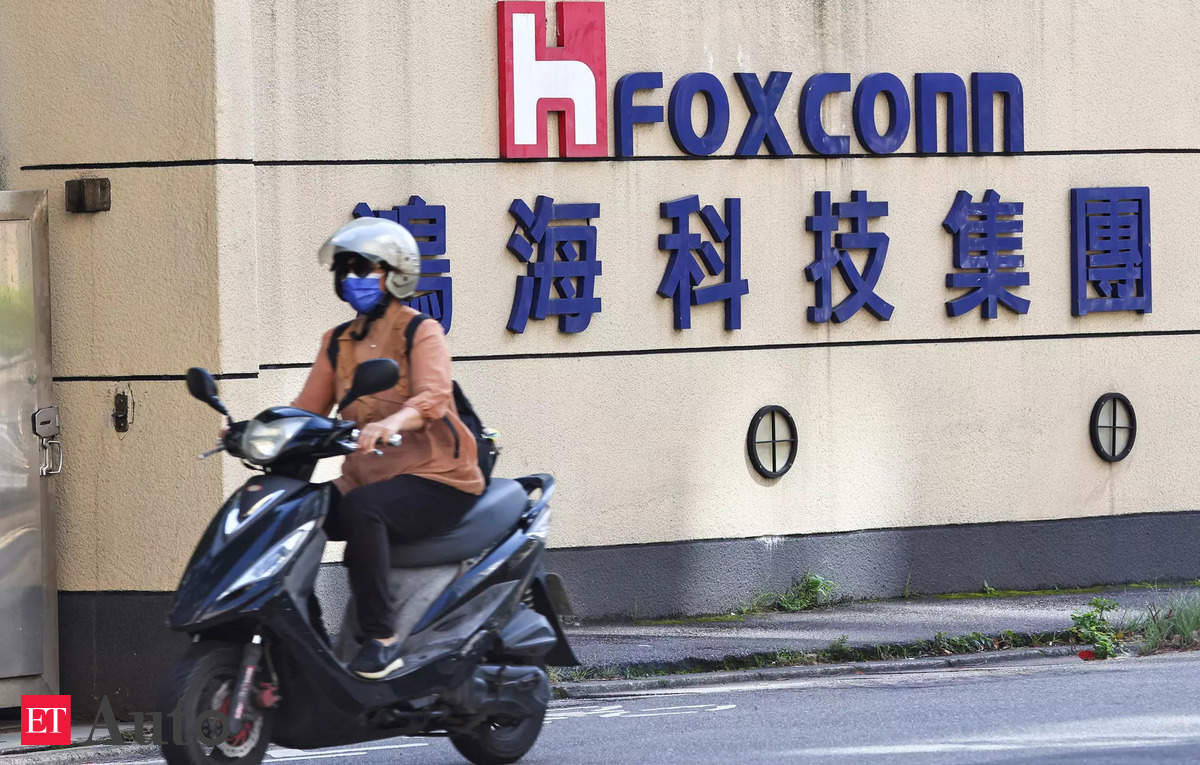Foxconn group company Bharat FIH‘s sprawling campus near Chennai, which was focused on manufacturing Android phones, is looking to tap newer segments in a bid to diversify and offset a slump in orders from its key client Xiaomi, since a government crackdown on Chinese businesses operating in India.
Bharat FIH is now looking to power growth in segments such as telecom equipment, electric vehicles, televisions and displays.
According to the company, the facility at Sriperumbudur is largely being used now for surface-mount technology (SMT) operations with some assembly, testing, marking, and packaging (ATMP) operations for specific segments.
Confirming the diversification strategy, Bharat FIH said it was leveraging on its success in smartphones to make strides in newer segments such as EVs. The company declined to disclose the Sriperumbudur plant’s operating capacity, which it said was a factor of customer demand, planning and prevalent market conditions. However, the company was quick to add that it has “exceptional capability” to expand capacity as per customer needs.
“Starting with smartphone manufacturing under Make in India, Bharat FIH has followed the GOI’s vision and roadmap of making India self-reliant in electronics manufacturing,” the company said in a statement to ET. “We started manufacturing telecom and networking products with the announcement of a Production Linked Incentive (PLI) in that segment. We are also a beneficiary of the IT Hardware PLI and are exploring business within the same. Our endeavour would be to support GOI’s localization plans for each product category.”
Someone aware of Bharat FIH’s operations said that in 2021, Xiaomi accounted for 95% of the company’s operations. But last year, with its move to diversify into newer segments, the company has managed to bring down this number to 40% in 2023.
However, experts ET spoke to said Bharat FIH was “heavily and solely dependent” on Xiaomi’s business which has seriously impacted its scale and the need to diversify beyond the sole Chinese brand and smartphones. The company primarily made devices for Xiaomi besides some volume for Nokia, but it doesn’t qualify for PLI benefits as the value of the handsets is less than INR 15,000. Global firms get incentives only on devices above INR 15,000 while the local firms avail benefits on all the devices, irrespective of price of a handset.
Xiaomi’s handset production in India declined to less than 30 million units as sales plunged 38% in 2023 compared to 2021, as per analyst estimates.
While the government crackdown was certainly a crucial factor hurting Bharat FIH, Neil Shah, vice president at mobile devices analytics firm Counterpoint Research said it was a double whammy as the Chinese smartphone giant also began expanding its Electronics Manufacturing Services (EMS) partner base.
“Xiaomi has been seen diversifying its EMS partners beyond Bharat FIH and has onboarded other EMS partners such as DBG, Padget among others, which has seen business from Xiaomi for Bharat FIH go down by 70% in 2023 as opposed to 2021,” Shah said.
India’s mobile phone contract manufacturing market is dominated by homegrown manufacturer Dixon with a 32% share, followed by Foxconn, and DBG Group, which makes Xiaomi and Realme smartphones. Bharat FIH is at fourth place with a single-digit market share.
Experts however, warned that the diversification will take time to bear fruit.
“It will take some time as these segments are already seeing established local players already garnering some good scale like Dixon, Padget and Radiant,” Shah added.
Bharat FIH, erstwhile Rising Star, was among five global firms chosen in 2021 to avail benefits under the PLI scheme for smartphones. The other four firms are Foxconn Hon Hai, Pegatron, Wistron –all contract manufacturers of Apple and Samsung.
Bharat FIH, also a Foxconn group company, failed to meet its production targets even once in three years of the scheme. Experts believe that for the remaining two years, the company will not get any incentive.
Failure to meet the targets costs Bharat FIH a couple of thousand crores rupees every year, which it could have availed in case it met the targets. In contrast, Foxconn Hon Hai, which makes iPhones, has far exceeded the targets.
According to analysts, India’s smartphone market is expected to remain stagnant in 2024 at around 146 million units. The market is forecast to grow marginally to reach 151 million units in 2025 but for firms like Bharat FIH, it would be difficult to compete with established players like Dixon. Also, Samsung and Chinese players like Oppo and Transsion have their own manufacturing units in India.





